Vulture Awareness Day: Date, History, Meaning and Celebration
When is International Vulture Awareness Day
On the first Saturday in September, International Vulture Awareness Day recognizes the dwindling numbers of vultures.
Meaning of International Vulture Awareness Day
The purpose of the day is not only to increase public awareness about the population of vultures, but also to provide education to the general public. Vultures are crucial for maintaining the ecological well-being of the environment.
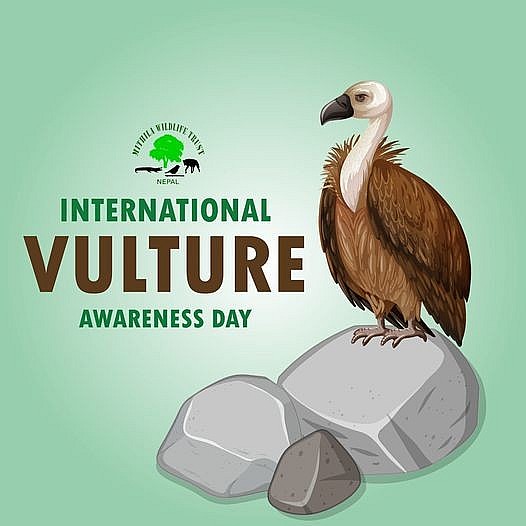 |
| Vulture Awareness Day |
Facts About Vultures
Two groups of 23 species of vultures live in different parts of the world. There are both Old World and New World vultures in these groups. They come from Asia, Africa, and Europe in the Old World. Thesebirds of prey live in both North and South America.
These scavengers are very important to the food chain. Vultures clean up after animals that eat trash. When vultures quickly eat dead animals, they clean up the environment. They also help keep it free of diseases that can spread.
Vultures also help catch poachers, which is another thing they do. Poachers leave the dead animals behind when they kill them illegally. Vultures fly around above the dead animal after they find it. This behavior helps the police find the animals that were stolen. A lot of people kill vultures because they help the police. Poachers kill the animal and then poison it after taking the skins or other prizes. Because of this, other scavengers can't survive around poisoned vultures.
Many types of vultures are thought to be in danger of going extinct. Out of the 23 species, 16 are thought to be threatened, vulnerable, or endangered. The number of vultures has dropped by 90% in some parts of the world. To protect the vulture, conservation groups work hard to teach people and make their voices heard, especially in Asia and Africa.
How to Celebrate International Vulture Awareness Day
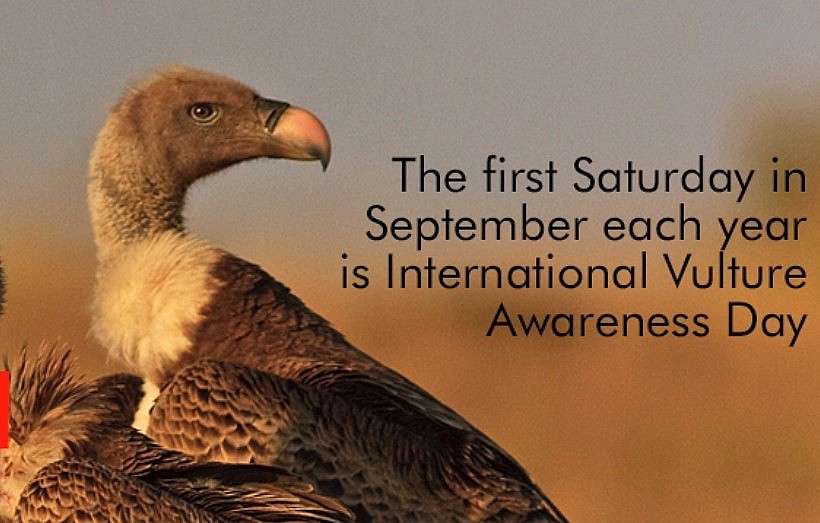 |
| How to Celebrate International Vulture Awareness Day |
Social media: As you’re celebrating, be sure to share #VultureAwarenessDay on social media.
Participate in an event: There are many events planned all over the world, not just in Europe. You can find an activity near you on IVAD's Activities Page.
Organize a family activity : There are a lot of fun activities for kids and families to do at home that can be found on IVAD's Downloads Page. These include a Vulture Maze, a Memory Game, and the VCF's Vulture Scavenger Hunt.
Raise Awareness: Take part in the conversation to help change how people think about vultures and bring attention to the need to protect them. To begin, you could talk to a friend or post something on social media. You can use the infographics we made about the different kinds of vultures that live in Europe. Don't forget to tag us on Instagram (@VultureConservationFoundation) and Twitter (@4Vultures) with #IVAD2022.
Support vulture conservation: Supporting the people and groups that work hard to protect vultures is another thing you can do to help them. To help them, you can spread the word about their conservation work, keep up with their news, and give money to their cause.
We would really appreciate it if you could help us with the work we do at the VCF. Share the news we post on our website and social media and follow us. To stay up to date, sign up for our monthly newsletter. You can also give money to us through our website to help us keep working to get vulture populations back to where they used to live in Europe.
Activities are planned by conservation groups for International Vulture Awareness Day. There are special events at zoos with vultures.
Events and activies may include:
- walking with vultures
- scavenger hunts
- vulture-feeding and flying demonstrations
- conservation discovery stations
- informational speeches
- presentations on the declining numbers of vultures
History of International Vulture Awareness Day
South Africa and the UK were the first places to celebrate International Vulture Awareness Day. The Birds of Prey Program in South Africa and the Hawk Conservatory Trust in England came up with Vulture Awareness Days together. The first International Vulture Awareness Day was held on September 5, 2009.
DATES:
7 September 2024
6 September 2025
5 September 2026
4 September 2027
2 September 2028
1 September 2029
7 September 2030
In Conclusion - Why are vultures important?
Vultures are very important to the places they live because they clean up after other animals. They probably stop the spread of disease and help keep ecosystems healthy by picking up dead things.
Because vultures are so good at eating dead animals, we don't have to pick them up and transport them to processing plants. This saves us millions of euros a year in waste management costs and hundreds of thousands of tons of greenhouse gas emissions. Vultures basically do things for the environment that are free and good for everyone!
But vultures are often forgotten about and misunderstood, even though they are very important. They need all the help they can get to keep their good name. Come celebrate International Vulture Awareness Day with us to show how much you care about these birds of prey.
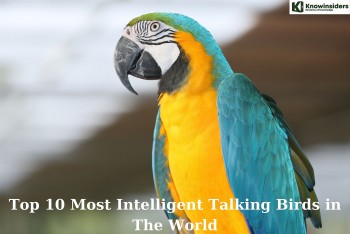 Top 10 Most Intelligent Talking Birds in The World Top 10 Most Intelligent Talking Birds in The World Some parrot species such as the African Gray Parrot, Yellow-naped Amazon are known for their ability to understand human language better. Here is a list ... |
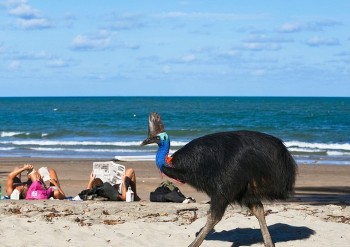 Top 7 Most Aggressive Birds on the Planet Top 7 Most Aggressive Birds on the Planet Not only are there beautiful and kind birds in the world of wild animals, but there are also birds that pose a serious threat to ... |
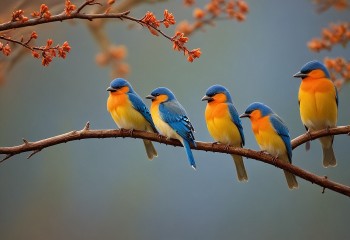 Facts About Bird’s Sleep - Sleeping While Flying and One Eye Open Facts About Bird’s Sleep - Sleeping While Flying and One Eye Open Birds of different kinds have varied sleeping habits. See how birds sleep by reading this article. |
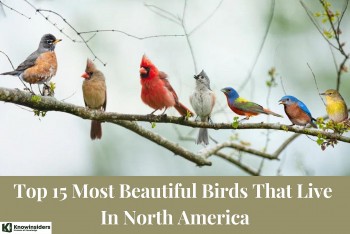 Top 15 Most Beautiful Birds That Live In North America Top 15 Most Beautiful Birds That Live In North America Birdwatchers and nature enthusiasts across North America are treated to a vibrant display of colors, patterns, and behaviors thanks to the continent's diverse bird population. ... |























